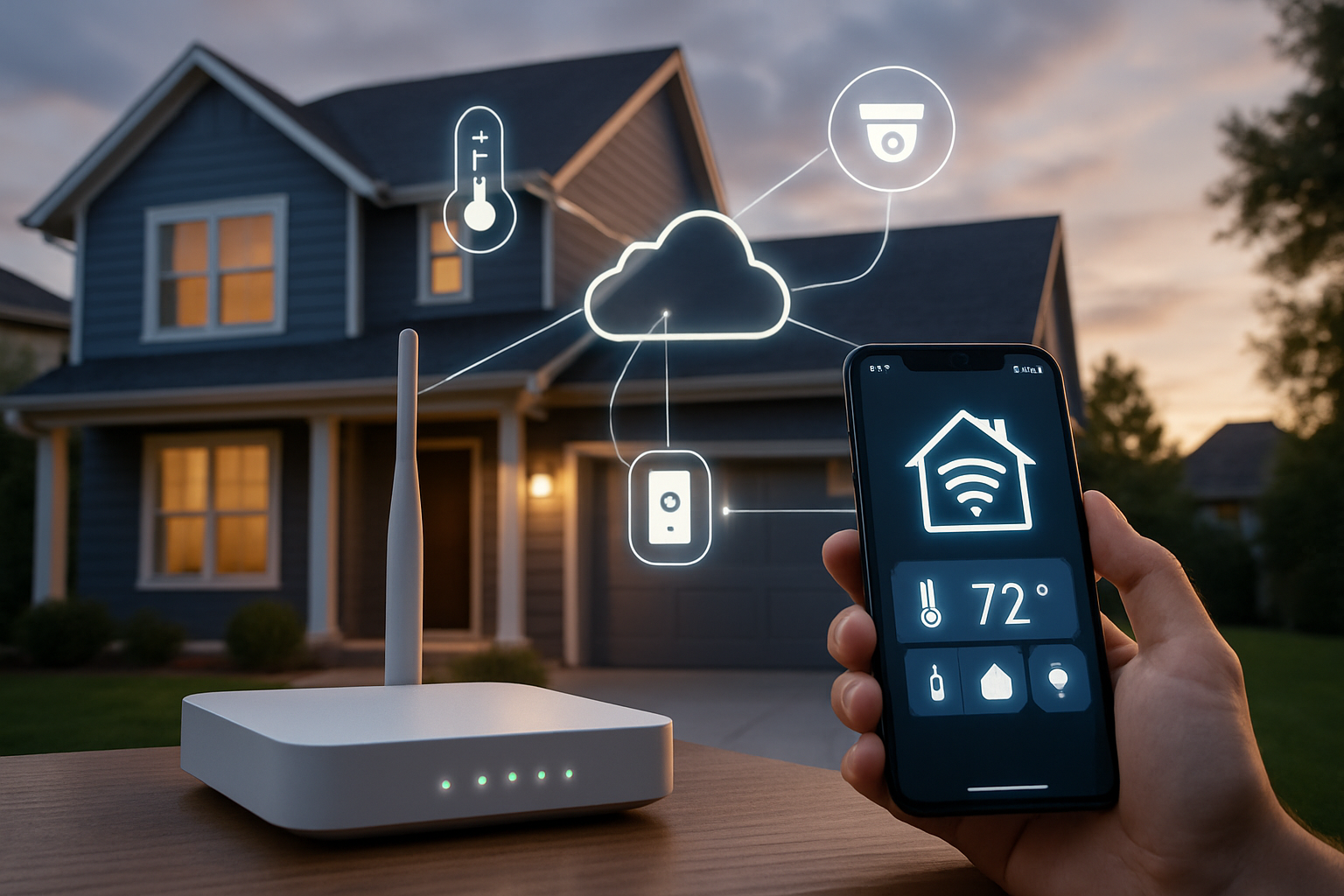Smarter Living: The Rise of Home Automation Systems
Smarter living has become more than just a trend—it’s a lifestyle shift driven by the rapid growth of home automation systems. From voice-activated assistants to smart thermostats, lighting, and security solutions, these technologies are transforming ordinary houses into interconnected hubs of convenience and efficiency. With the ability to control devices remotely, automate daily routines, and enhance energy savings, home automation not only simplifies life but also creates safer, more sustainable living environments for modern households.

How Smart Technology Delivers Convenience and Efficiency in Everyday Life
Smart home automation streamlines daily routines through intelligent scheduling and remote control capabilities. Voice assistants like Amazon Alexa, Google Assistant, and Apple’s Siri enable hands-free operation of connected devices, while smartphone apps provide control from anywhere with internet access. Automated lighting systems adjust brightness based on time of day or occupancy, while smart thermostats learn household patterns to optimize heating and cooling schedules.
Energy management represents another significant efficiency gain. Smart meters and connected appliances provide real-time usage data, helping homeowners identify energy-wasting patterns and adjust consumption accordingly. Programmable irrigation systems water gardens only when needed, while smart power strips eliminate phantom energy draw from electronics in standby mode.
Enhancing Security and Safety at Home Through Connected Systems
Modern home security has evolved beyond traditional alarm systems to include comprehensive monitoring and prevention capabilities. Smart doorbell cameras allow homeowners to see and communicate with visitors remotely, while motion sensors trigger alerts and automatic lighting to deter potential intruders. Connected smoke and carbon monoxide detectors send immediate notifications to smartphones, enabling faster emergency response even when residents are away.
Smart locks eliminate the need for physical keys while providing detailed access logs showing who entered and when. Many systems integrate with security cameras to create comprehensive surveillance networks that homeowners can monitor through mobile applications. Water leak sensors can detect flooding early and automatically shut off main water supplies to prevent extensive damage.
Integration Challenges and Technical Considerations
Despite their benefits, smart home systems face several implementation challenges. Device compatibility remains a significant concern, as different manufacturers often use proprietary communication protocols that don’t interact seamlessly. The Matter standard, developed by major tech companies, aims to address this fragmentation by creating universal connectivity between smart devices regardless of brand.
Network reliability is crucial for consistent operation. Most smart devices require stable internet connections, making them vulnerable to service disruptions or router failures. Local processing capabilities in newer systems help maintain basic functionality during network outages, but many advanced features still depend on cloud connectivity.
The Future of Smart Homes and Sustainable Living
Emerging smart home technologies increasingly focus on environmental sustainability and energy independence. Solar panel integration with smart grid technology allows homes to generate, store, and distribute renewable energy efficiently. Advanced battery systems store excess solar power for use during peak demand periods or outages, reducing reliance on traditional utility companies.
Artificial intelligence and machine learning algorithms continue improving system efficiency by analyzing usage patterns and automatically optimizing performance. Future developments may include more sophisticated predictive capabilities that anticipate needs based on weather patterns, calendar events, and historical data. Integration with electric vehicle charging systems will further enhance home energy management capabilities.
Smart water management systems are emerging as critical components for sustainable living. These systems monitor consumption patterns, detect inefficiencies, and optimize usage across different household applications. Combined with greywater recycling and rainwater harvesting technologies, smart homes can significantly reduce their environmental footprint.
Market Overview and System Investment Considerations
The smart home market encompasses various product categories with different price points and complexity levels. Basic starter systems typically include a smart hub, a few sensors, and lighting controls, while comprehensive installations may integrate dozens of connected devices throughout the home.
| System Type | Price Range | Key Components | Installation Requirements |
|---|---|---|---|
| Basic Starter Kit | $200-500 | Hub, smart plugs, basic sensors | Self-installation possible |
| Mid-Range System | $1,000-3,000 | Security cameras, smart locks, thermostats | Some professional installation recommended |
| Comprehensive Setup | $5,000-15,000 | Whole-home integration, advanced sensors, professional monitoring | Professional installation required |
Professional installation costs typically range from $500 to $2,000 depending on system complexity and home size. Monthly monitoring services for security systems generally cost between $20 and $60, while cloud storage for cameras adds another $5 to $20 monthly. Many homeowners start with basic systems and expand gradually as needs and budgets allow.
Prices, rates, or cost estimates mentioned in this article are based on the latest available information but may change over time. Independent research is advised before making financial decisions.
The rise of home automation represents a fundamental shift toward more intelligent, efficient, and sustainable living environments. While implementation challenges exist, improving technology standards and falling costs continue making smart homes more accessible to mainstream consumers. As these systems mature, they promise to deliver greater convenience, security, and environmental benefits for households worldwide.




